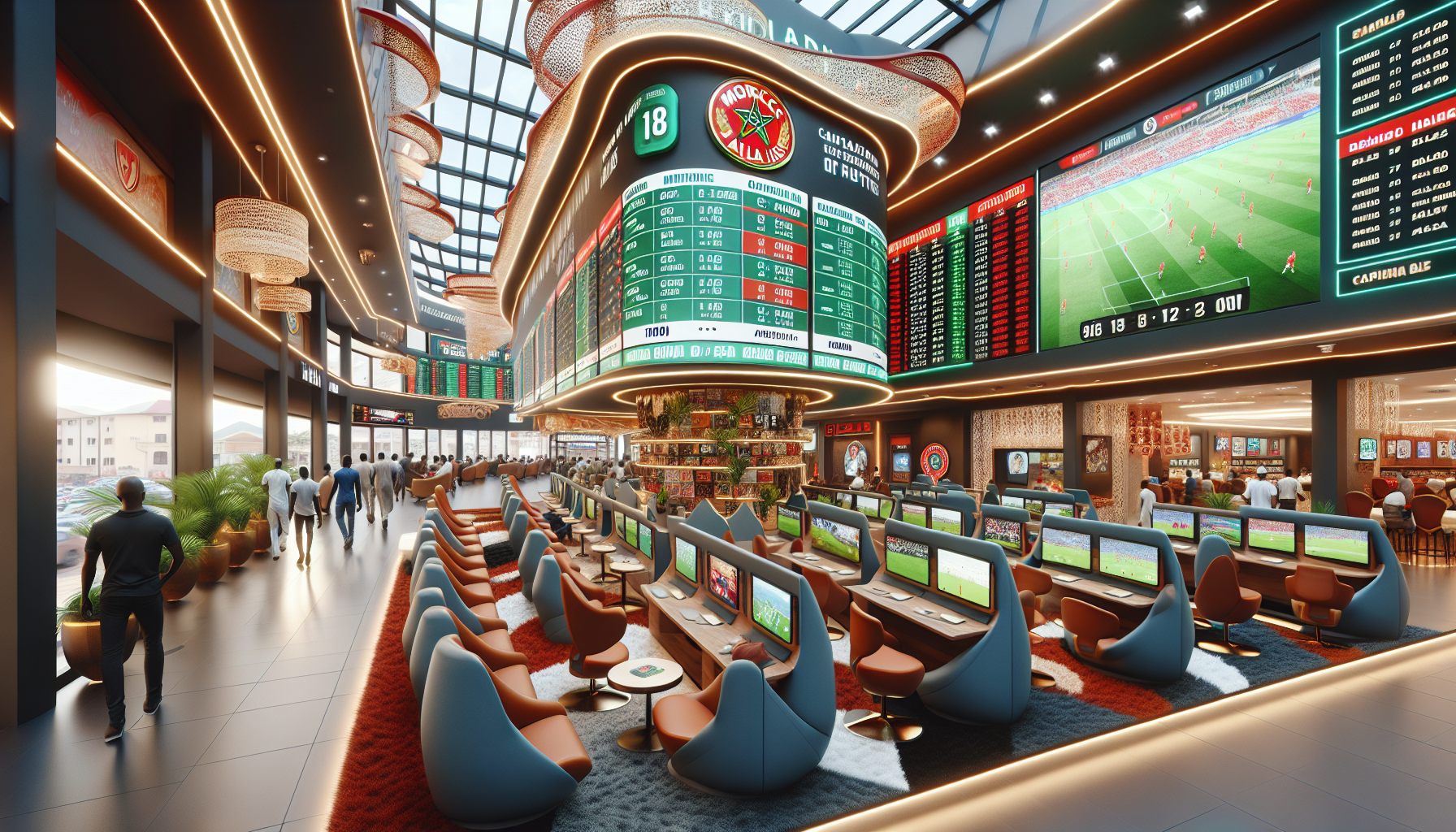Overview of Nigeria Stadiums
Nigeria, a country located in West Africa, is known for its vibrant culture, diverse population, and love for sports. One of the most popular sports in Nigeria is football and there is no shortage of passion and enthusiasm when it comes to supporting their local teams. This love for football has led to the development of numerous stadiums across the country, making Nigeria a top destination for sports lovers.
Discover Nigeria Stadiums
One of the most unique aspects of Nigerian stadiums is their design. Many of them incorporate traditional African architecture and elements into their structure, making them not only functional but also visually appealing. For example, the Godswill Akpabio International Stadium in Uyo features a roof that resembles a bird’s wingspan, paying homage to the country’s national symbol.
Moreover, some Nigerian stadiums have been built using sustainable methods and materials. The Teslim Balogun Stadium in Lagos uses solar panels to generate electricity for its operations, reducing its carbon footprint.
Another interesting aspect is that many Nigerian stadiums have been named after influential individuals who have made significant contributions to sports or society. For example, Enyimba International Stadium was named after a legendary football team while Stephen Keshi Stadium was named after a former national football team coach who led his team to victory at the Africa Cup of Nations.
Stadiums in Nigeria
There are currently over 100 stadiums in Nigeria that cater to various sporting events. These include football, athletics, basketball, and more. The largest stadium in the country is the National Stadium Abuja with a capacity of 60,491 seats. It was built in 2003 and has since hosted several international events such as the African Cup of Nations and FIFA World Cup qualifiers.
Other notable stadiums include Teslim Balogun Stadium in Lagos with a capacity of 24,325 seats and Uyo International Stadium with a capacity of 30,000 seats. These stadiums have been used for major events like the Nigerian Professional Football League (NPFL) matches as well as international friendlies.
Nigeria Stadium – A Place for Unity

Stadiums are not just venues for sporting events but they also serve as a place where people from different backgrounds come together to support their favorite teams. In Nigeria, this unity can be seen during football matches where fans put aside their differences to cheer on their team.
Moreover, many Nigerian stadiums also host cultural events such as music concerts which bring people from all walks of life together. This creates a sense of community and fosters national pride among Nigerians.
New Nigeria Stadium – A Step Towards Progress
In recent years, there has been an increase in the construction of new stadiums across Nigeria. These state-of-the-art facilities not only enhance the overall sports experience but also contribute to the country’s progress and development. One such example is Edo State Sports Complex which was built for the 2020 National Sports Festival and has since become a hub for various sporting events.
The construction of new stadiums also provides employment opportunities and boosts the local economy. It also showcases Nigeria’s commitment to promoting sports and providing its citizens with top-notch facilities.
Pros / Cons
Pros:
– Provides world-class facilities for sporting events
– Promotes unity among Nigerians
– Attracts tourism and boosts local economy
– Hosts cultural events and promotes diversity
Cons:
– Some stadiums lack proper maintenance
– Limited accessibility for people with disabilities
– Security concerns during major events
FAQ
Q: How many stadiums are there in Nigeria?
A: There are currently over 100 stadiums in Nigeria.
Q: Which is the largest stadium in Nigeria?
A: The National Stadium Abuja with a capacity of 60,491 seats is the largest stadium in Nigeria.
Q: Do Nigerian stadiums host events other than sports?
A: Yes, many Nigerian stadiums also host cultural events such as music concerts.
Pros / Cons
Pros:
– Provides modern and advanced facilities
– Boosts local economy and creates job opportunities
– Showcases Nigeria’s progress and development
– Enhances the overall sports experience
Cons:
– Can be expensive to build and maintain
– Limited accessibility for lower-income communities
FAQ
Q: How many new stadiums have been built in recent years in Nigeria?
A: There has been an increase in the construction of new stadiums across Nigeria, with examples like Edo State Sports Complex.
Q: Do new stadiums provide employment opportunities?
A: Yes, the construction of new stadiums creates job opportunities for local communities.
Q: How do new stadiums contribute to Nigeria’s progress?
A: New stadiums showcase Nigeria’s commitment to promoting sports and providing its citizens with modern facilities.
Conclusion

Nigeria is a country that takes pride in its love for sports, particularly football. With over 100 stadiums spread across the country, it is evident that Nigerians are passionate about supporting their teams. These stadiums not only provide world-class facilities for sporting events but also serve as a place where people come together to celebrate their shared love for sports and culture. The development of new stadiums further showcases Nigeria’s progress and commitment towards promoting sports. With continued investment in these venues, Nigerian stadiums will continue to attract both local and international attention, making them an essential part of the country’s identity on a global scale. So whether you’re a die-hard fan or simply looking to experience Nigerian culture at its finest, make sure to check out one of these amazing nigeria stadium experiences during your next visit!




